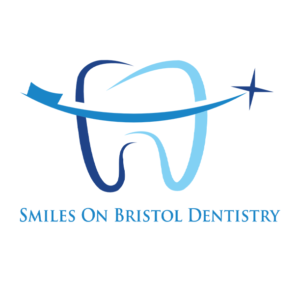According to Santa Ana, CA, dentist, Dr. Danial Kalantari, of Smiles on Bristol Dentistry, dentists mainly concern themselves with the teeth and the structures that support the teeth. Oral medicine doctors focus more on diseases that affect the mouth and lower part of the face. They will also concern themselves with teeth for patients with unique situations, such as cancer patients who have special oral needs due to radiation treatment.
They help patients with systemic diseases that have symptoms that manifest in the oral region. Diseases include Lichen Planus which is thought to be an autoimmune disorder that attacks the skin and mucous membranes. It is characterized by legions that tend to look like lichen, hence the name. Certain dental appliances can create similar lesions so an oral medicine doctor may be consulted to determine whether the lesion is dental related or caused by the Lichen Planus disease. There are oral specific Lichen Planus strains that affect the mucous of the mouth, as well as, mucous in the throat. Most patients with mucosal Lichen Planus have it in multiple locations.
Another disease oral medicine doctors look for also affects the oral mucous membrane. It is called Behçet’s disease and is a rare form of vasculitis, aka a disease that destroys blood vessels. Behçet’s disease creates small ulcers and is systemic, attacking many parts of the body. This disease cannot be cured, and treatments are used mostly to help mediate the symptoms.
Pemphigus Vulgaris is another autoimmune disorder. It causes painful, blistering skin lesions. Along with the skin, is can attack mucous membranes, making it another target for oral medicine doctors to look for.
Oral medicine doctors are also specially trained to identify oral cancer and pre-cancerous areas called Leukoplakias or Erythroplakias. Dentists will look for signs of oral cancer but tend to be more occupied with handling the many areas of dental care. Leukoplakia and erythroplakia does not refer to any disorder in particular but show up as white areas on the mucosal areas of the mouth. When they cannot be identified as any other type of disorder, they are categorized as areas of damaged tissue which are more susceptible to contracting cancer. They show up most often in patients who smoke and the chance they turn malignant varies. These white patches generally have no symptoms and cause no side effects to patients, but doctors will want patients to come in for consistent checkups of the spot to make sure it does not develop into a malignant cancer.
Pain in the oral and lower facial region not caused by dental issues may also be diagnosed and treated by an oral medicine doctor. This can include Neuralgia which is a broad category covering pain and issues to the nerves. There are different types of neuralgia depending on where it manifests. Nerve damage can result from trauma, infections, and pressure from inflammation or tumors. The symptoms generally include strong pain, but can also feature an itchy feeling or the feeling of an electric jolt. Pain can be consistent or sharp and sudden. Neuralgia near the oral cavity and in the head can cause headaches that are easily mistaken for migraines. While sometimes hard to diagnose, neuralgia is found by using different techniques to locate damaged nerves.
Oral medicine doctors also help with atypical facial pain, which is pain that cannot be diagnosed as any other condition. Generally, these conditions have symptoms that do not match any known diseases or disorders or that do not respond properly to tried treatments.
They are knowledgeable in treating chemo and radiation induced disorders of the head including oral mucositis and osteonecrosis. Oral mucositis produces ulcers and inflammation in the oral mucous membranes. While mucositis is not particularly common in most patients undergoing radiation treatment, cancer patients who are receiving chemo or radiation treatment to their head or neck have much higher chances of developing mucositis. Radiation can also damage bone tissue which is causes osteonecrosis. This can cause severe problems for the skull, jaw, and teeth. Oral medicine doctors can diagnose this condition and help patients retain as much bone tissue as possible.
Sjögren’s syndrome, burning mouth syndrome, and temporomandibular joint dysfunction (TMJ) are other conditions oral medical doctors commonly treat. Sjögren’s syndrome is another autoimmune disorder that causes chronic dry mouth because the body’s white blood cells attack and destroy the salivary glands. Dry mouth is a common condition that increases the chance of tooth decay. However, due to the systemic nature and severity of Sjögren’s syndrome, it requires special treatment beyond usual dry mouth fixes. Burning mouth syndrome unsurprisingly causes a patient to have a burning sensation in the mouth. An oral medicine doctor will first try to find underlying conditions that could cause the symptom and if no conditions can be found, will provide treatments to help soothe the symptoms. TMJ refers to any improper function of the joint connecting the jaw to the skull. With their expertise on the facial anatomy, oral medicine doctors can sometimes provide more accurate diagnoses and treatments to patients suffering from TMJ pain.

